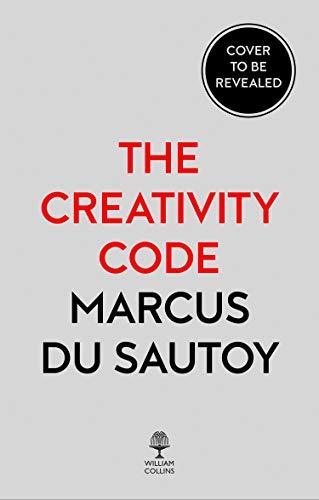What do you think?
Rate this book


Will a computer ever compose a symphony, write a prize-winning novel, or paint a masterpiece? And if so, would we be able to tell the difference?
As humans, we have an extraordinary ability to create works of art that elevate, expand and transform what it means to be alive.
Yet in many other areas, new developments in AI are shaking up the status quo, as we find out how many of the tasks humans engage in can be done equally well, if not better, by machines. But can machines be creative? Will they soon be able to learn from the art that moves us, and understand what distinguishes it from the mundane?
In The Creativity Code, Marcus du Sautoy examines the nature of creativity, as well as providing an essential guide into how algorithms work, and the mathematical rules underpinning them. He asks how much of our emotional response to art is a product of our brains reacting to pattern and structure, and exactly what it is to be creative in mathematics, art, language and music.
Marcus finds out how long it might be before machines come up with something creative, and whether they might jolt us into being more imaginative in turn. The result is a fascinating and very different exploration into both AI and the essence of what it means to be human.
333 pages, Kindle Edition
First published February 18, 2019
Stories like this have fuelled mathematicians' fears that computers might lead us to build elaborate edifices on top of programs that are structurally sound. But frankly a human has more chance of making a mistake than a computer. It may be a heresy to admit it, but there are probably thousands of proofs with gaps or mistakes that have been missed.
How do we know that the computer program doing the checking doesn't have a bug? You could get another computer to check that program for bugs, but where would this end? Scence and mathematics have always been dogged by this dilemma. How can you be certain that your methods are leading you to true knowledge? Any attempt to prove that it is invariably depends on the methodology you are trying to show produces truth.
At the moment all the creativity in machines is being initiated and driven by the human code. We are not seeing machiens compelled to express themselves. They don't really seem to have anything to say beyond what we are getting them to do. They are the ventriloquist's dummy providing the mouthpiece for our urge still to express ourselves.
...
And that creative urge is an expression of our belief in free will. We can live our lives like automata or we can suddenly make the choice to stop and break out of the routine and create something that is new. Our creativity is intimately ound up with our free will, something that it seems impossible to automate. To program free will would be to contradict what free will means.
...
Although, then again, we might end up asking whether our free will is an illusion which just masks the complexity of our underlying algorithmic process.
[] the Library of Babel, where because it contains everything it ends up containing nothing
There is a huge amount of hype about AI. There are too many initiatives that are branded as AI but which are little more than statistics or data science. Just as any company wishing to make it at the turn of the millennium would put .com on the end of its name, today it is the addition of the tag AI or Deep which is what companies are using to jump on the bandwagon.
If they [computers] become conscious, it's unlikely to be something that humans will initially understand. Ultimately it will be their paintings, their music, their novels, their creative output, eventheir mathematics that will give us any chance to crack the machine's code and feel what it's like to be a machine.